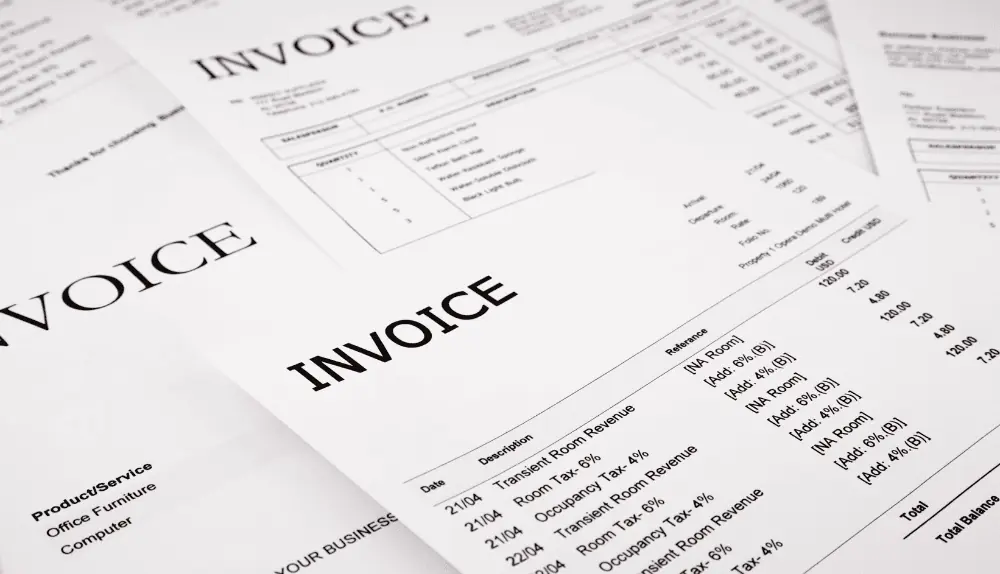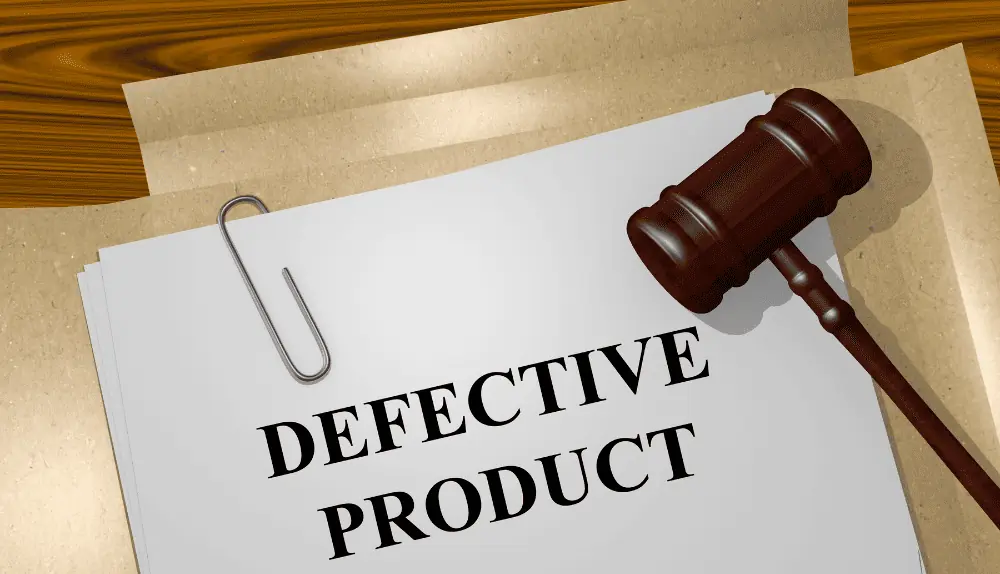As consumers, we heavily rely on credit cards to make purchases ranging from groceries to big-ticket items. However, sometimes the charge on a credit card statement may not reflect the product or service that was expected or authorized.
In that case, it might be crucial to challenge the bill with the credit card provider. While one has various reasons to dispute a charge, ensuring the dispute is legitimate, and all relevant documentation is available to support the claim is crucial. Here are six legitimate reasons to dispute a charge on a credit card statement.
Reasons to Dispute a Charge
Fraudulent or Unauthorized Charges
Fraudulent or unauthorized charges on credit card statements can occur due to credit card fraud or identity theft. A third party may use the cardholder’s information to make unauthorized purchases in such cases. It is crucial to take prompt action if such a charge is noticed.
If a consumer notices a charge on their credit card statement they did not authorize, they should immediately contact their credit card issuer to report the fraudulent account. It is crucial to note the charge immediately to minimize potential losses. Credit card companies take unauthorized charges seriously and typically have systems to investigate and prevent fraud. Once a bill is reported, the card issuer usually puts a hold on the account and conducts an investigation.
In most cases, the cardholder will not be responsible for paying the fraudulent charge, and the credit card issuer will remove the head from the statement. However, consumers may be required to provide documentation to support their claims, such as evidence that they did not make the purchase or any correspondence with the merchant.
Billing Errors
Another legitimate reason to dispute a charge on a credit card statement is when there is a billing error. These errors can occur for various reasons, such as double billing, incorrect orders, or costs for items never received or returned. Billing errors can also result from a miscommunication between the merchant and the credit card company. In such cases, consumers must immediately contact their credit card issuer to dispute the charge.

When disputing a charge for a billing error, consumers should provide documentation to support their claims. This may include receipts, billing statements, or other correspondence with the merchant. The credit card issuer will initiate an investigation into the dispute and may require additional documentation to support the claim.
Remember that credit card companies have policies to protect consumers from billing errors. The credit card issuer usually works with the merchant to resolve the dispute. If the billing error is due to a merchant error, the merchant may issue a credit or refund. If the error is due to a credit card company error, the card issuer will adjust the statement accordingly and issue a credit or refund.
Consumers should also regularly monitor their credit card statements to promptly detect billing errors. The customers should keep track of all communication related to the dispute, including the date and time of the contract, the name of the person they spoke to, and a summary of the discussion. This documentation can be crucial in resolving the dispute and can also serve as evidence if legal action is necessary.
Disputing Services or Products That Were Not Received
Disputing a charge for services or products not received is a legitimate reason to dispute a payment on a credit card statement. This situation can occur for various reasons, such as a misunderstanding with the merchant or a scam. In such cases, consumers must immediately contact their credit card issuer to dispute the charge.

Consumers should provide as many details as possible to support their claim when disputing a charge for services or products that were not received. This may include any communication with the merchant, such as emails or receipts, tracking information, or other relevant documentation. The credit card issuer will initiate an investigation into the dispute and may require additional documentation to support the claim.
Poor Quality or Damaged Products
Receiving a product of poor quality or damage can be a frustrating experience for consumers, especially if they have paid for it in full. The reasons for such disputes include a manufacturing defect, improper handling during shipping, or poor quality control. In such cases, consumers need to take prompt action and contact the merchant to attempt to resolve the issue.

Consumers should clearly explain the issue and provide evidence to support their claim when contacting the merchant. This may include photographs of the product, receipts, or correspondence with the merchant. Maintaining a professional and polite tone while communicating with the merchant is important, as this can help resolve the issue more amicably.
If the merchant is unresponsive or uncooperative, consumers may need to dispute the charge with their credit card issuer. Consumers should provide all relevant documentation to support their claim when fighting an order for poor quality or damaged product. The credit card issuer will initiate an investigation and may require additional documentation to support the claim. Patience is key to success during the process, as the investigation may take several weeks to complete.
Subscription or Membership Charges
Subscription or membership charges are recurring charges consumers sign up for, such as streaming services, gym memberships, or other subscription-based services. These charges are automatically billed to the consumer’s credit card regularly, such as monthly, quarterly, or yearly.
While subscribing to a service or membership is easy, canceling it can sometimes be difficult. Consumers may find themselves being charged even after canceling their subscription or membership due to a misunderstanding or a mistake by the service provider. This can be frustrating, especially if the consumer has taken all the necessary steps to cancel the subscription or membership.
The Consumers should contact the service provider to attempt to resolve the issue and provide the service provider with documentation, such as cancellation confirmation emails or letters, billing statements, or other correspondence to support their claims. They should also ensure they have followed the proper cancellation procedures per the service provider’s terms and conditions.
If the service provider is unresponsive or uncooperative, consumers may need to dispute the charge with their credit card issuer. The credit card issuer will initiate an investigation and may require additional documentation to support the claim. The credit card issuer will typically put a hold on the account while the investigation is ongoing.
Consumers should provide documentation to support their claim when disputing a subscription or membership charge. This may include cancellation confirmation emails, letters, billing statements, or other correspondence with the service provider. If the argument is resolved in favor of the consumer, the credit card issuer will adjust the statement accordingly and issue a credit or refund.
Incorrect Transaction Amounts
Another legitimate reason to dispute a charge on a credit card statement is when the transaction amount is incorrect. Incorrect transaction amounts can happen due to various reasons, such as a processing error, a technical glitch in the merchant’s system, or a mistake made by the merchant while manually entering the transaction amount.
Sometimes, the credit card company may also make an error while processing the transaction. Regardless of the reason, consumers need to monitor their credit card statements regularly to detect any incorrect transaction amounts promptly.
Sometimes, the incorrect transaction amount may be due to a merchant’s error, and the merchant may be willing to resolve the issue directly with the consumer. However, suppose the merchant is unresponsive or uncooperative. In that case, the consumer may need to escalate the matter to their credit card issuer to ensure the issue is resolved promptly and satisfactorily. The issuer will initiate an investigation and may require supporting documentation to support the dispute.

The consumers should keep a complete record of all communication related to the dispute, including the date and time, the name of the person they spoke to, and a summary of the discussion. This documentation can be crucial in resolving the dispute and can also serve as evidence if legal action is necessary.
Six Invalid Charge Dispute Reasons
While there are legitimate reasons to dispute a credit card statement charge, credit card issuers may consider some reasons invalid. Disputing a charge for any of these reasons may not result in a successful resolution, and consumers should avoid making claims based on these grounds:
Buyer’s Remorse
Feeling regret after purchasing is not a valid reason to dispute a charge. Credit card issuers generally do not consider buyer’s remorse a valid reason to reverse a transaction, and consumers are encouraged to return the item or work out an agreement with the merchant for a refund or exchange, if possible.
Disliking the Product or Service
Not being satisfied with the quality of a product or service, unless it is significantly different from what was advertised or promised, does not warrant a dispute. In such cases, it is recommended to communicate with the merchant directly to seek a resolution, such as a refund, exchange, or credit.
Forgetting to Cancel a Subscription
If a consumer forgets to cancel a subscription or membership before renewal and is charged for the next billing cycle, it is generally not considered a valid reason to dispute the charge. Consumers should ensure they cancel their subscriptions or memberships according to the service provider’s terms and conditions to avoid being charged.
Ignoring a Return Policy
Failing to adhere to a merchant’s return policy, such as missing the return deadline or not following the proper return procedures, is not a valid reason for disputing a charge. Consumers should familiarize themselves with the return policies of merchants and ensure they follow the guidelines when returning items.
Disagreements over Pricing
A dispute over the price of a product or service, such as believing the item was overpriced or should have been on sale, is not a valid reason to dispute a charge. In these cases, consumers should address their concerns directly with the merchant or shop around for better deals before making a purchase.
Personal Disputes with Merchants
A personal disagreement or dissatisfaction with a merchant, such as poor customer service or a rude employee, is not a valid reason to dispute a charge on a credit card statement. Consumers should address these concerns directly with the merchant or provide feedback through review platforms or customer service channels.
Standing Up for Financial Rights with Confidence
Understanding the distinction between legitimate and invalid reasons for disputing a charge on a credit card statement is crucial for consumers. By recognizing valid reasons, such as fraudulent or unauthorized charges, billing errors, non-received products or services, poor quality or damaged products, subscription or membership charges, and incorrect transaction amounts, consumers can take appropriate action to protect their financial rights and resolve disputes effectively.
On the other hand, being aware of invalid reasons for disputing a charge, such as a buyer’s remorse, disliking a product or service, forgetting to cancel a subscription, ignoring a return policy, disagreements over pricing, or personal disputes with merchants, can prevent unnecessary disputes and maintain a healthy relationship with credit card issuers and merchants.
By regularly monitoring credit card statements, promptly reporting any unauthorized charges, and keeping a record of all communication related to disputes, consumers can increase their chances of resolving issues in their favor. Ultimately, staying vigilant and taking the right action in the face of discrepancies in credit card statements is essential for safeguarding one’s financial security.

